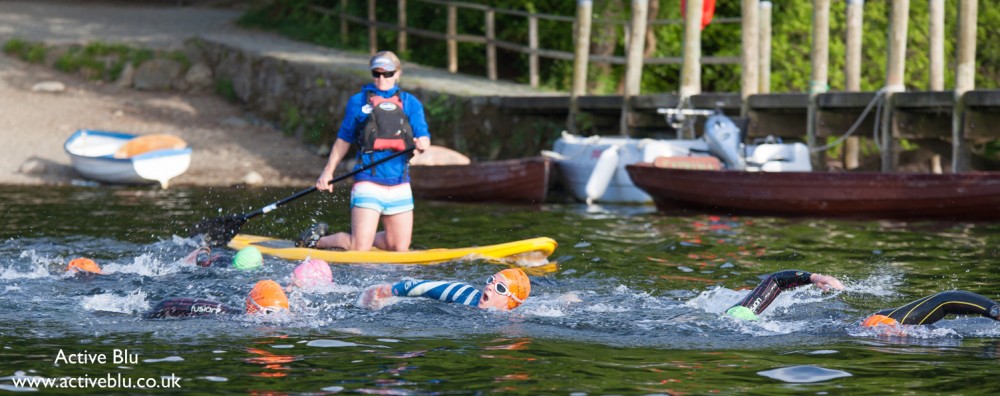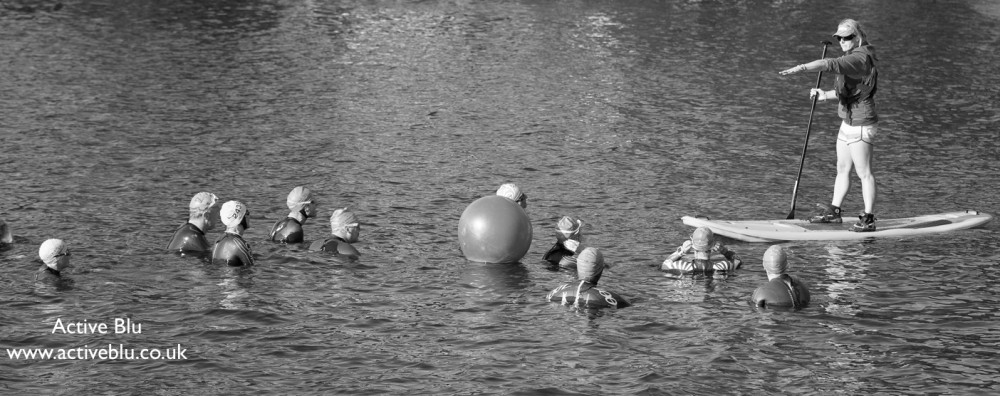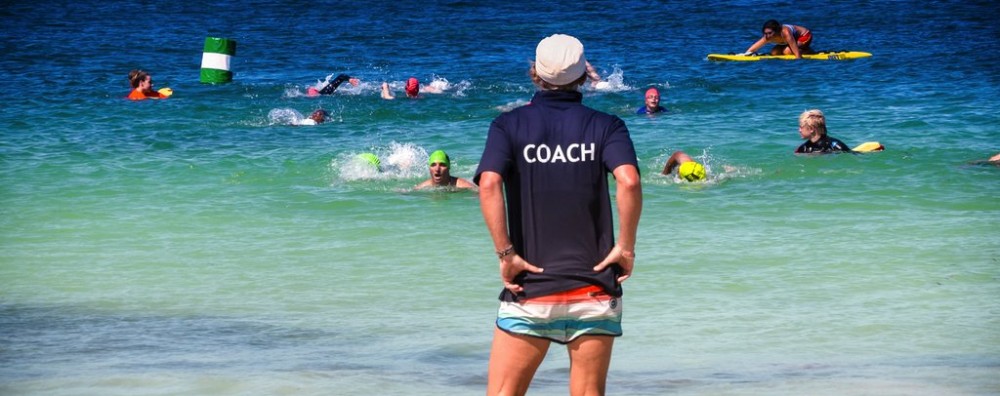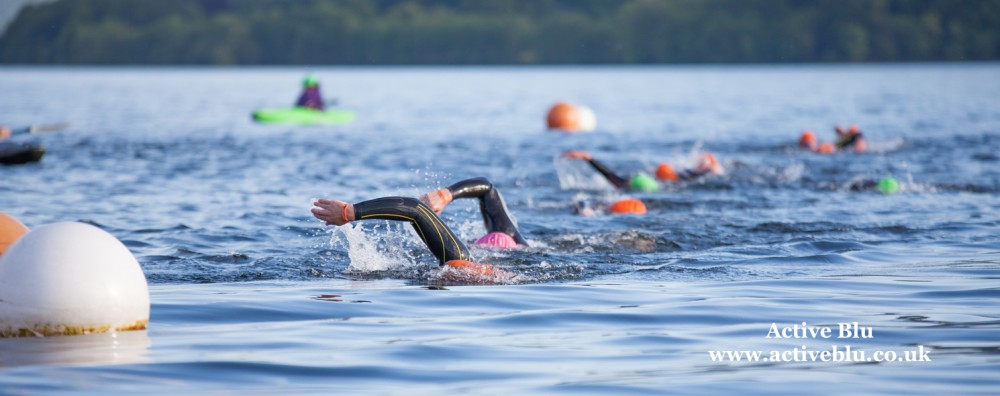As we build up to the New Year, now is the perfect time to look back on the last 12 months, have a reflect on everything that happened, good and bad, make some plans and set some goals for 2014.
Swim Smooth Coach Emma Brunning recently made her second trip out from the UK to Perth after a gap of around 6 months and has some really interesting reflections on how different athletes improved within the Swim Smooth Squads whilst she was away and how they did it.
Wherever you are at right now with your swimming, hopefully it will kick start a few thoughts and ideas in your own mind about how you can take things to the next level in 2014.
Emma’s Reflections: My time in Perth
I am one of the UK Certified Coaches lucky enough to run my own business Active Blu on Lake Windermere in the beautiful surrounds of the Lake District National Park. This year and last I’ve had the opportunity to escape the dark and wet British winter for a few months to visit Australia, and as you can imagine I grasped it with both hands!
Perth is a fantastic place to visit and the work is really interesting too, I have been coaching in the extensive Swim Smooth squads and supporting our Coach Development Programme working with the latest group of certified coaches in training.
 |
| Lane 1: My favourite lane to work with! |
I’m typing this on the flight back from Australia right now and thinking back to everything I saw over the last 3 months in Perth. It was really evident just how many of the squad had improved since last winter, not just in performance but also in confidence. As a passionate coach that likes to see people achieving their goals and dreams, I wanted to share my reflections with you to help make your training more enjoyable, useful and rewarding.
It seems to me there are several key areas which helped motivate and encourage the swimmers:
1. Create A Routine That Fits Your Life
The majority of us have significant family commitments and jobs, and we all have differing goals for participating in our sports. This means the commitment we can give, the way we train and the outcomes we desire differ slightly to the next person. Whatever your situation it is important that we recognise what we can do, rather then focus on what we can’t:
 |
| Emma with the amazing Sue Oldham from our squad – the oldest woman to have swum the English Channel! |
– Be realistic with your time commitments, it is far better to train slightly within yourself but very consistently than go through a boom-and-bust cycle of training as you overcommit and life bites you back.
– Whatever your level of swimming and level of commitment, recognise at the end of the day it’s about enjoyment so make sure that you enjoy the routine you create and that you don’t put too much pressure on yourself. If you’re a ‘highly strung’ person then often less pressure brings better results.
– It is a lot of fun (and great motivation) to train in a well organised squad and the group dynamic can really push your swimming forwards. These days squads often cater for all levels of ability and if at all possible I’d recommend you try a few sessions with a local group to see how you get on.
The group camaraderie in the squads in Perth is incredible and whilst us certified coaches can’t bring the Perth sunshine to your area, we do actively nurture that same positive, motivating and athlete centred approach in all our own local squads. Being part of a group like that can make an incredible difference to your swimming, don’t miss any opportunity you have to join one!
2. Keeping It Simple And Measure Your Progress
Something that is really obvious with the athletes in Perth who really kicked on whilst I was away was how they kept their swimming routine really simple. There is so much conflicting advice out there, but following a few simple guidelines on your training week will help you to be successful, without over complicating it:
 |
| It’s not all hard work on the pool-deck. |
– Follow the same structure every week, for example: Monday- CSS training set. Wed – Technique session. Friday – Endurance session. Keep a routine like that rolling for months on end and you can’t help but improve.
– Be really clear in your mind what the goal of each session is and how it will help you improve.
– Work out your CSS and monitor your progress to gain motivation as you improve. You would be amazed how often swimmers take big strides forwards but don’t realise it and struggle with motivation or even quit just when it is coming together! In Perth we normally conduct some sort of timetrial or a CSS test every 8 weeks so every swimmer can see how they are progressing, you should do the same.
– For more on keeping it simple, see my blog post here: activeblu.blogspot.com.au/2013/11/keeping-it-simple.html
3. Consistency Is The Key
Once you have a training plan that is achievable, progressive and you understand it, then stick to it! Perhaps easier said than done but so so important. Every swimmer who I ever spoke to who got significantly faster recognised that relentless consistency was the key to their success:
– Keep a training log so you can track your consistency over time.
– Recognise that you can only move your fitness forwards slightly from each individual session but from a series of 20, 30, 50 or 100 sessions over many months (and even years) you can really move mountains. So see the goal as completing a block of training rather than attempting world-records in a single session.
– If you’re training hard then schedule recovery and lower intensity weeks to avoid burn-out.
– As a great example of consistency at work, check out Paul Newsome’s 50 training sessions he completed before winning the 46km Manhattan Island Swim – all around a full time job and a young family: swimsmooth.com/paul-mims-training.html
 |
| Find out more about Emma’s coaching at activeblu.co.uk and find your nearest Swim Smooth coach at: swimsmooth.com/certifiedcoaches |
4. Essential Components
Here’s some other specifics that I’ve also observed to be critical to improvement:
– Your training needs to include your race skills. If you are a triathlete or open water swimmer that means practising open water specifics such as drafting, sighting and developing a symmetrical stroke to swim straight. You can put a huge amount of effort into improving your basic stroke technique and fitness but it will all go to waste if you can’t execute well in your race environment.
– Practice what you least like as these are probably the areas that need most work!
– Do not underestimate the importance of breathing drills, no matter what level you are at with your swimming.
OK, I hope that triggers some thoughts to reflect on with your own swimming and how you might go about improving things for yourself in 2014. Think of some new challenges and know that with the right support, training and advice almost anything is possible!
Best wishes and have a fantastic New Year!
Emma Brunning
Swim Smooth Certified Coach
www.activeblu.co.uk
PS. One final thought, it’s striking how often we forget to celebrate our successes. So if you have had a great 2013 or achieved something you never thought you could over the last 12 months then make sure you take the time to reflect on that and enjoy the moment. And at this time of year there’s no harm in rewarding yourself with an extra mince pie or glass of red, you’ll soon burn that off when Swim Smooth gets to work on you in January! 😉
PPS. Let me know your thoughts and how you are getting on by tweeting me@ActiveBlu










